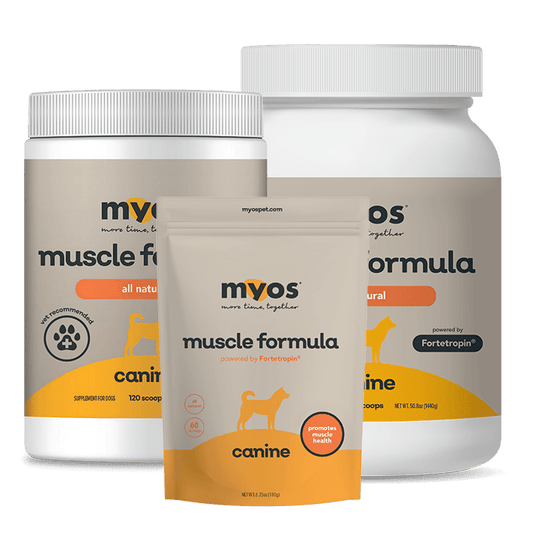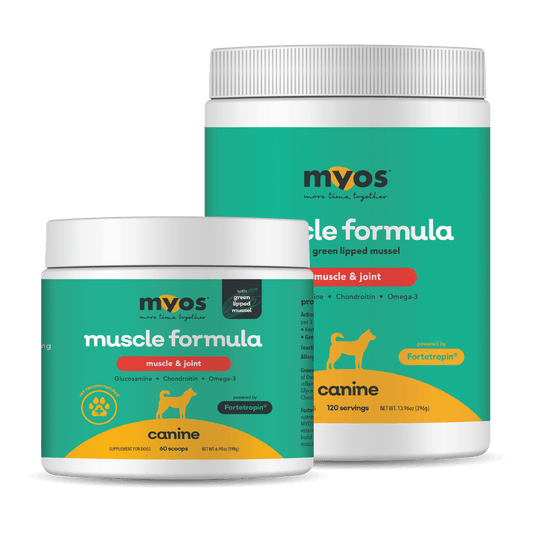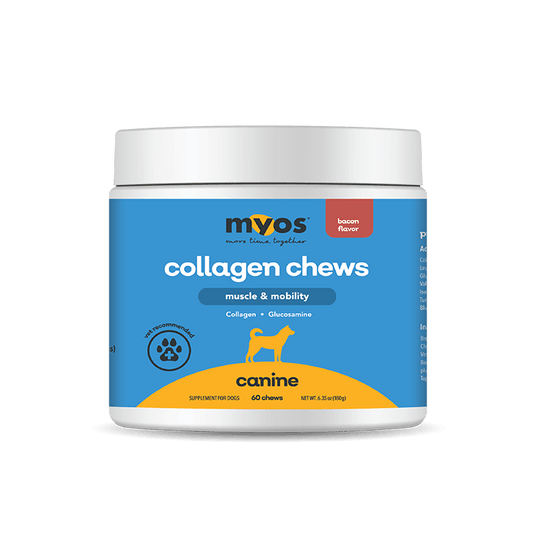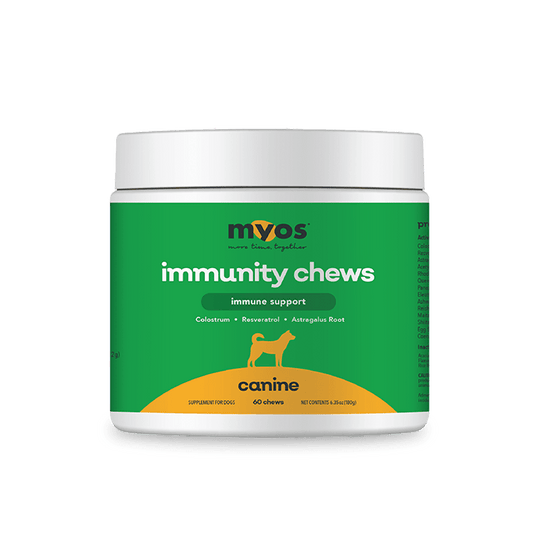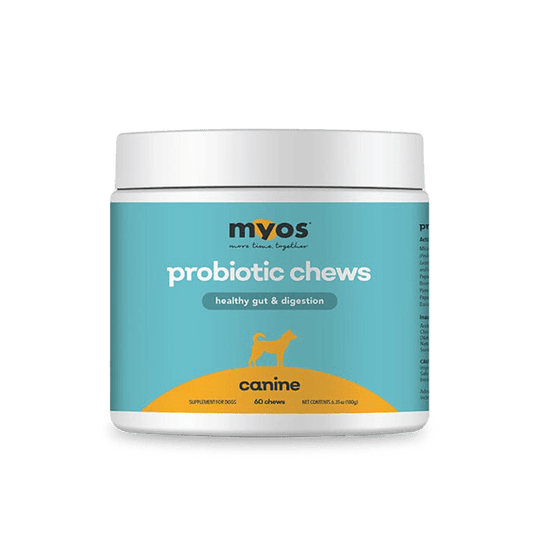Like humans, dogs experience changes in their vision as they age. Some of the leading causes of vision less in humans include cataracts and age-related macular degeneration (AMD).
Cataracts result when the lens undergoes clouding over time while AMD involves degradation of the back part of the eye known as the retina. Degeneration of the retina and clouding of the lens (nuclear sclerosis) are two conditions that can have a detrimental impact on the visual health of your aging dog.
In the field of Human Ophthalmology, extensive research has demonstrated that dietary lutein, zeaxanthin and β-carotene along with other major antioxidants including vitamins C and E can reduce the odds of developing cataracts and AMD [1]. The advanced nutrition product, Fortetropin® is manufactured using fertilized egg yolk as starting material and egg yolk is a rich source of the carotenoids, lutein and zeaxanthin.
During the manufacturing process of Fortetropin®, egg yolk undergoes a form of pasteurization known as high pressure pasteurization (HPP), that is less harsh towards the wealth of nutrients that are found within egg yolk but highly effective at inactivating harmful pathogens such as E. Coli, S. Aureus and Salmonella.
One of the most well known studies involving the impact of nutrition on preserving vision is known as AREDS (Age-Related Eye Disease Study) which was sponsored by the National Eye Institute, now part of the U.S. National Institutes of Health (NIH) [2]. The AREDS involved involved 4,757 study subjects, 55-80 years of age, in 11 clinical centers nationwide.
Subjects were prescribed one of four treatments: 1) zinc alone; 2) antioxidants alone; 3) an antioxidant and zinc combination or 4) a placebo. Subjects that consumed 3) antioxidant and zinc combination were found to have the lowest risk of developing advanced AMD. Subjects in groups 1) and 2) experienced a moderate reduction in developing advanced AMD while those subjects in the placebo group were at greatest risk for developing AMD.
The formula used in the original AREDS study included 500 milligrams (mg) of vitamin C, 400 international units of vitamin E, 15 mg beta-carotene, 80 mg zinc as zinc oxide and 2 mg copper as cupric oxide.
The encouraging results that were observed in AREDS encouraged researchers to perform the AREDS 2 Study [3]. The following changes were made to the original AREDS formula
-
10 mg lutein and 2 mg zeaxanthin were added
-
1000 mg of omega-3 fatty acids (350 mg DHA and 650 mg EPA) were added
-
Beta-carotene was removed
-
25 mg zinc was used as opposed to 80mg
Beta-carotene was removed from the AREDS 2 formulation due to an increased risk of lung cancer in people that had recently quit smoking. On the other hand, lutein and zeaxanthin (that are found in egg yolk) are not associated with increased cancer risk. Data analysis that was performed using the results of AREDS 2 indicated that subjects that took a formulation containing lutein and zeaxanthin had an 18 percent lower chance of developing advanced AMD relative to those who took the antioxidant, beta-carotene.
In a recent study that was performed at the University of Missouri College of Veterinary Medicine, researchers found that supplementation with lutein and zeaxanthin was likely to be effective in long-term preservation of vision in dogs [1]. Fortetropin® is a rich source of the antioxidants, lutein and zeaxanthin and may help maintain your dog’s visual health as your dog ages.
References:
- Wang, Wei, et al. "Antioxidant supplementation increases retinal responses and decreases refractive error changes in dogs." Journal of nutritional science 5 (2016).
- Age-Related Eye Disease Study Research Group. "A randomized, placebo-controlled, clinical trial of high-dose supplementation with vitamins C and E, beta carotene, and zinc for age-related macular degeneration and vision loss: AREDS report no. 8." Archives of ophthalmology 119.10 (2001): 1417.
- Chew, Emily Y., et al. "Lutein+ zeaxanthin and omega-3 fatty acids for age-related macular degeneration: the Age-Related Eye Disease Study 2 (AREDS2) randomized clinical trial." JAMA-Journal of the American Medical Association 309.19 (2013): 2005-2015.

